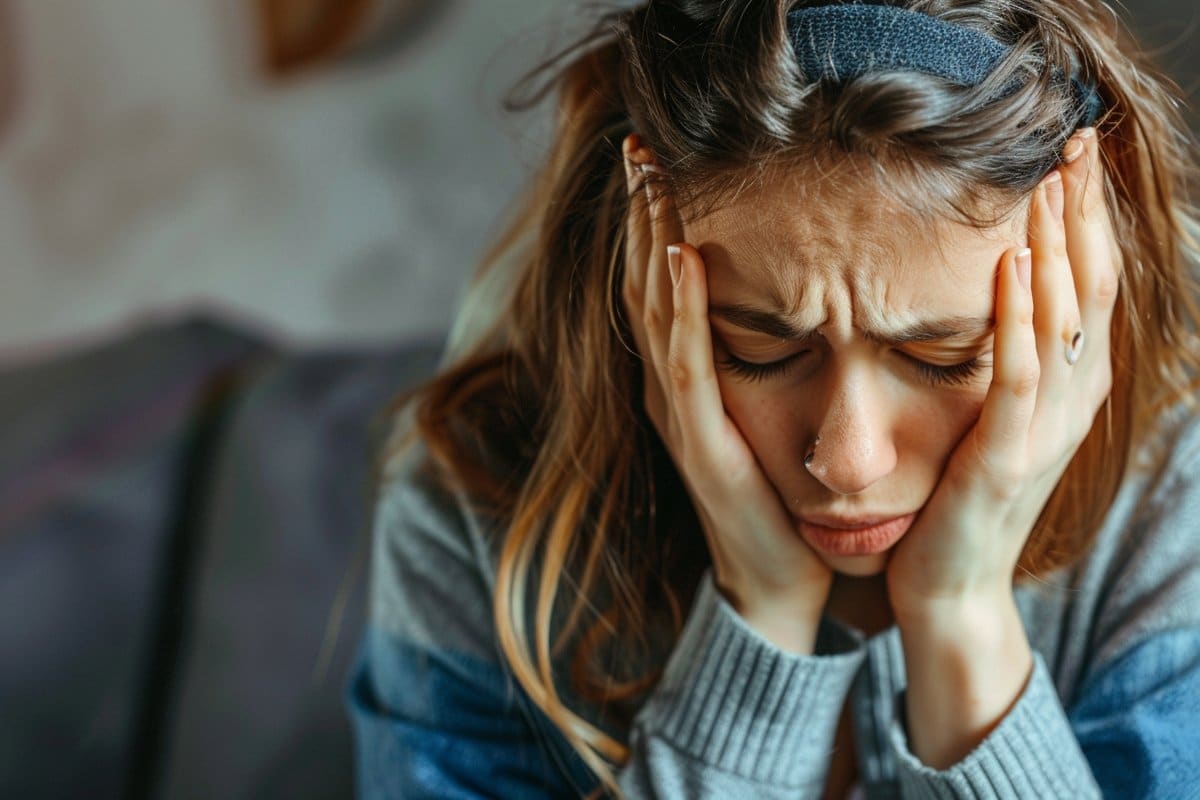Summary: A recent study reveals that younger adults feel and appear older on days filled with stress, particularly when they perceive their control over life as diminished.
This research, involving 107 participants aged 18 to 36, underscores the link between stress, perceived age, and control over one’s life on a daily basis. It highlights that the feeling of aging prematurely among younger adults is not just about the level of stress but significantly tied to how much control they feel they have.
The study’s implications suggest a need for interventions that bolster both mental and physical health by enhancing personal autonomy and managing stress.
Key Facts:
- Younger adults report feeling and looking older on stressful days, especially when they feel a lack of control.
- The study involved 107 participants between 18 and 36 years old, monitoring their stress, control, and perceived age over eight days.
- The phenomenon of stress-induced aging is not confined to older adults; it affects young people too, raising concerns for their long-term health.
Source: UNC
A new study finds younger adults look and feel older on stressful days – but only on days when they also feel they have relatively less control over their own lives.
“There’s substantial research that tells us stress makes older adults feel their age, or even feel older than they actually are,” says Shevaun Neupert, corresponding author of the study and a professor of psychology at North Carolina State University.
“And the literature tells us that when seniors feel older than they actually are, that is associated with a host of negative health outcomes. However, there is little research examining this issue in younger adults – people in their teens, 20s and 30s.
“Having a deeper understanding of this phenomenon across all age groups could help us develop interventions that protect our mental and physical well-being.
“This work may be particularly timely, as stress researchers are seeing an increase in the amount of stress younger adults are experiencing now, when compared to the amount of stress previous generations experienced when they were young.”
For this study, researchers collected data from 107 younger adults between the ages of 18 and 36 (mean age was around 20). Study participants completed a baseline survey followed by a detailed daily survey for eight consecutive days.
The daily surveys were designed to capture the amount of stress they were experiencing each day, how much control they felt they had over their lives that day, and how old they felt and looked on that day.
“The key finding was that on days when study participants reported experiencing higher levels of stress than they normally did, they also reported looking and feeling older,” Neupert says.
“However, this was only true on days when study participants also reported feeling that they had less control over their lives than they normally did.
“It’s also worth noting that both the levels of stress and the levels of control were relative.”
In other words, a person could report having relatively low levels of stress – but if the level of stress was higher than they normally reported, researchers saw the effect. By the same token, people could report feeling they still had significant levels of control over their lives – but if it was less control than they normally reported, researchers saw the effect.
“For one thing, this tells us that the phenomenon of stress making people feel older is not limited to older adults – it happens to young people too,” Neupert says.
“It’s also important because we know that experiencing chronic stress over time can have adverse effects, and that people generally report increasing levels of stress as they move from young adulthood to midlife – their 40s and 50s,” Neupert says.
“If these young people are already experiencing historically high levels of stress for their age, and that stress is affecting how old they feel, it will be important for us to pay close attention to the markers we use to assess stress-related physical and mental health for this generation.”
About this stress and aging research news
Author: Matt Shipman
Source: UNC
Contact: Matt Shipman – UNC
Image: The image is credited to Neuroscience News
Original Research: Open access.
“The effect of control beliefs on the relationship between daily stressors and subjective age in younger adults” by Shevaun Neupert et al. Mental Health Science
Abstract
The effect of control beliefs on the relationship between daily stressors and subjective age in younger adults
Experiencing stress can be associated with feeling and looking older. The goal of this study was to examine daily fluctuations in control beliefs as a potential moderator of the relationship between daily stressors and two indicators of subjective aging in younger adults.
Data were collected from 107 younger adults between the ages of 18 and 36 (M = 19.96) who completed an online questionnaire via Qualtrics daily for 9 consecutive days.
On Day 1, participants reported demographic information and on Days 2–9, participants reported their daily subjective ages (how old they felt and how old they looked), daily stressors, and perceptions of daily control beliefs.
Results from multilevel models revealed that increases in daily stressors were associated with increases in both felt and look age.
Although there was no main effect of control beliefs, control beliefs did function as a moderator of the relationship between daily stressors and felt age as well as between daily stressors and look age. Specifically, the aging effect of daily stressors was not significant on days with increases in control beliefs.
These results suggest that young adults feel and look older on days when they experience higher levels of stressors and that increases in perceptions of control help to mitigate this effect.

Rachel Carter is a health and wellness expert dedicated to helping readers lead healthier lives. With a background in nutrition, she offers evidence-based advice on fitness, nutrition, and mental well-being.








